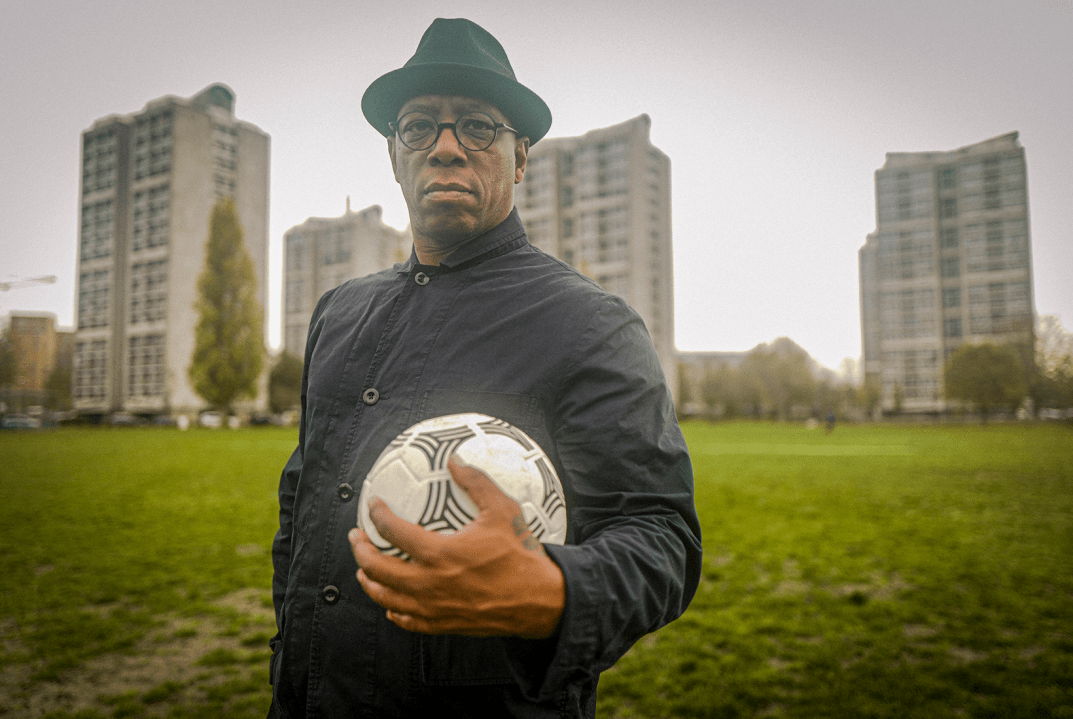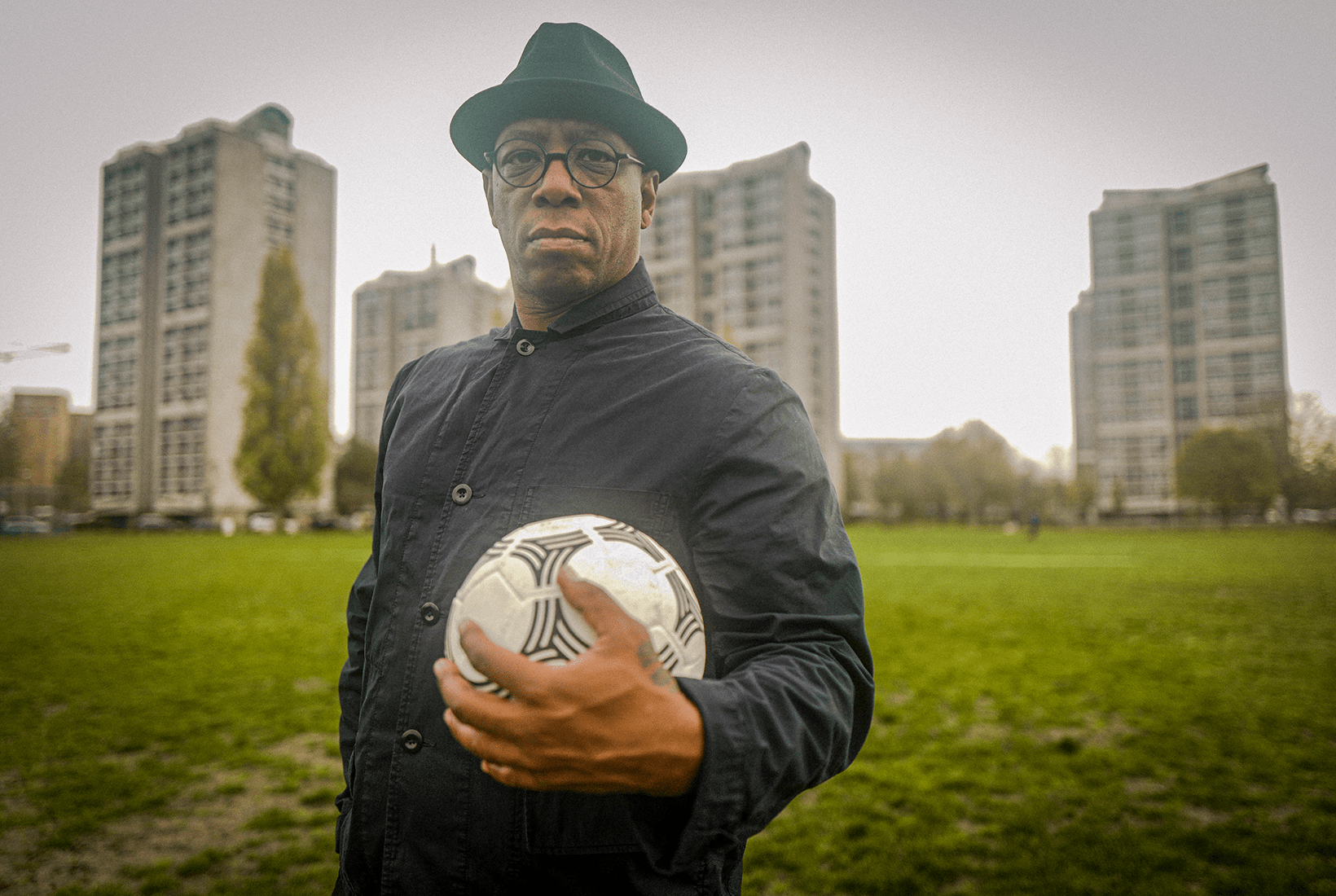Ian Wright: Home Truths began with the ex-footballer saying that the home he grew up in was ‘not a happy one’. As truths go, though, this soon turned out to belong firmly in the category of ‘understated’. Not surprisingly, Wright’s favourite boyhood programme was Match of the Day — which is why his stepfather would make him stand with his face against the wall while it was on. (‘Just because he could,’ Wright explained.) He also beat Wright’s mother: often, Wright recalled, while she repeatedly cried the word ‘Sorry!’ One consequence of this abuse, he went on, was that she took it out on him — informing him on ‘a daily basis’ that she hated him and, slightly less regularly, that she wished she’d had him terminated.
These days Wright lives in a house full of such middle-class signifiers as wooden serving bowls for pasta and oversized glasses for wine. But, as he put it with the anguished matter-of-factness that characterised much of the programme, ‘I keep remembering things.’ He wonders, too, about the long-term effects of a childhood spent in a state of fear — not only on him but on others who’ve had similar experiences. Indeed, one of the many virtues of a documentary that might even deserve that hideously overused TV adjective ‘brave’ was how well it blended Wright’s personal story with the wider picture of domestic abuse in Britain, which affects 1.6 million women — in 90 per cent of cases where children are present.
Wright’s emotional reactions were all over the place in an entirely authentic way
For the personal-story part he returned to the house in south-east London where he, his older brother Morris, his mother and stepfather lived in a single room. After weeping at the sight of the wall where he suffered his weekly Match of the Day humiliation, he pointed out with a rueful semi-smile that ‘This wall doesn’t realise what it’s done to me in my life.’ He also spoke about their childhood — apparently for the first time — with Morris, who shares his brother’s taste for understatement. Why, Wright asked him, did you keep putting your hands over my ears when we in bed? ‘So you didn’t hear, mate,’ Morris replied.
For the wider picture, Wright visited campaigners, school counsellors and an organisation that works with abusers who want to stop. One of them was asked ‘What is he thinking?’ when he’s about to hit his partner. ‘The thinking,’ he said after a moment’s reflection, ‘is that you want to hurt that person.’
As befits a BBC1 documentary, Wright did his best to accentuate hope, emphasising all the help that’s now available — unlike in his childhood — and seeing for himself just how helpful it can be. But when it came to himself, he remained too honest to give us the usual straight tale of redemption, in which the celeb triumphs over a terrible past. Instead, his emotional reactions were all over the place in an entirely authentic way. The sentence, ‘I absolutely adore my mum’, for example, was followed immediately by ‘There were times I hated her’ and, as a conclusion, ‘I don’t know what I feel.’ His desire to talk about what happened to him was constantly accompanied by a desire not to. When a psychiatrist explained that what his mother used to say to him represented ‘severe emotional abuse’, he seemed simultaneously angry, upset and greatly relieved to be told officially that he hadn’t been overreacting all these years.
Throughout everything, another of the programme’s qualities was that neither it nor the man himself ever remotely sought to make Wright some kind of heroic figure — which might be a further reason why he came across as one.
Bloods, a new sitcom about London paramedics, is based on the not unfamiliar premise of a mismatched pair of main characters. Maleek (Samson Kayo) is the sort of Londoner who regards the rest of the country as an amorphous blob of not-London (i.e., some might think, a Londoner). Wendy (Jane Horrocks) is from the part of that blob the locals call ‘Nottingham’ and therefore, as far as Maleek is concerned, a hopeless rube. Except of course that it doesn’t work out that way — because in another great sitcom tradition dating back to Tony Hancock, Maleek’s self-importance is not matched by his talents.
Happily, if hilarity doesn’t quite ensue, plenty of good jokes do, along with a general air of likeability, including from the supporting cast: among them a female boss excruciatingly bent on male banter and a pair of blokes named Daryl and Darrell, whose bromance is both winningly silly and rather tender.
The result may be a little conventional for some tastes. Yet, while the boundaries of sitcom go resolutely unpushed, there’s surely something to be said for a show that resides so contentedly and successfully within them.







Comments